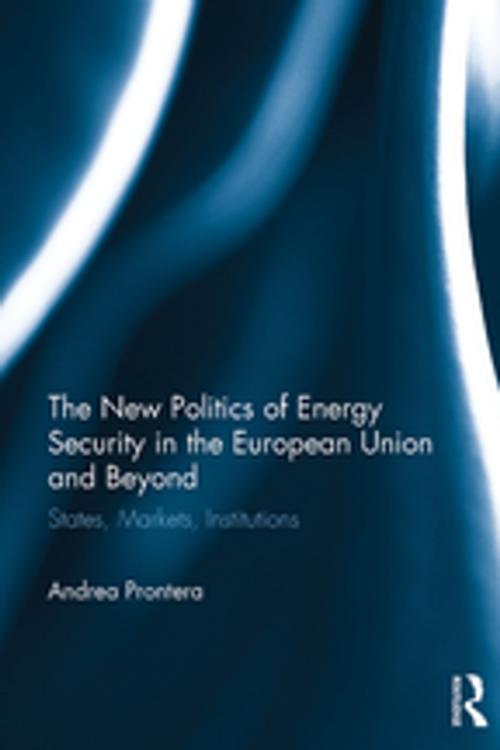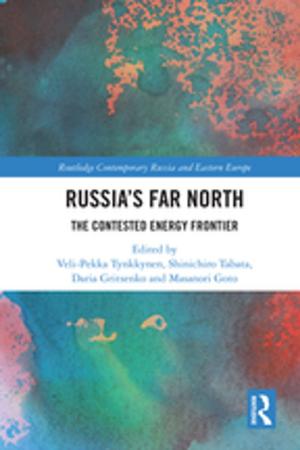The New Politics of Energy Security in the European Union and Beyond
States, Markets, Institutions
Nonfiction, Social & Cultural Studies, Political Science| Author: | Andrea Prontera | ISBN: | 9781317022688 |
| Publisher: | Taylor and Francis | Publication: | May 18, 2017 |
| Imprint: | Routledge | Language: | English |
| Author: | Andrea Prontera |
| ISBN: | 9781317022688 |
| Publisher: | Taylor and Francis |
| Publication: | May 18, 2017 |
| Imprint: | Routledge |
| Language: | English |
Combining theoretical reflections and empirical insights from paradigmatic case studies in the area of external energy governance, pipeline politics, Liquefied Natural Gas development and offshore petroleum policy and politics, this ground-breaking study demonstrates that a distinctive and new politics of energy security is definitively emerging in the European Union. Innovative not only in regard to the case studies presented (which include the Caspian region, the Baltic, Mediterrean countries, Central Asia and EU-Russia relations), but also in regard to the analytical framework adopted – an International Political Economy approach informed by an historical institutional perspective – the book challenges the common view of the ‘de-politicisation’ of energy security supported by the mainstream market approach and the power politics and ‘zero-sum game’ view supported by the geopolitical perspective. This book places the study of EU energy politics in the broader, evolving context of global energy markets and explores the complex interactions between EU and national political dynamics and between energy security and environmental concerns at the local level.
Combining theoretical reflections and empirical insights from paradigmatic case studies in the area of external energy governance, pipeline politics, Liquefied Natural Gas development and offshore petroleum policy and politics, this ground-breaking study demonstrates that a distinctive and new politics of energy security is definitively emerging in the European Union. Innovative not only in regard to the case studies presented (which include the Caspian region, the Baltic, Mediterrean countries, Central Asia and EU-Russia relations), but also in regard to the analytical framework adopted – an International Political Economy approach informed by an historical institutional perspective – the book challenges the common view of the ‘de-politicisation’ of energy security supported by the mainstream market approach and the power politics and ‘zero-sum game’ view supported by the geopolitical perspective. This book places the study of EU energy politics in the broader, evolving context of global energy markets and explores the complex interactions between EU and national political dynamics and between energy security and environmental concerns at the local level.















